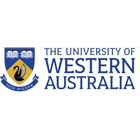Bachelor of Engineering (Hons) – Mechanical Engineering
Bachelor of Engineering (Hons) – Mechanical Engineering
Mechanical Engineering is all about the development, installation, operation and maintenance of machinery, solving practical engineering problems and improving efficiency – putting mechanical engineering graduates in high demand in many industries. Ideal for anyone with an interest in how things work and being hands-on finding solutions and innovations. You’ll explore…
Categories
COURSE DESCRIPTION
Mechanical Engineering is all about the development, installation, operation and maintenance of machinery, solving practical engineering problems and improving efficiency – putting mechanical engineering graduates in high demand in many industries.
Ideal for anyone with an interest in how things work and being hands-on finding solutions and innovations. You’ll explore the theory and practise used in mechanisms, machines, vibration, manufacturing, control, thermodynamics, fluid mechanics, materials, robotics, and computer simulation. You’ll gain the knowledge and skills to work in industry to design new devices, and to carry out research into mechanical systems including the system operation and control.
As well as covering the core theories, methods and practices used in modern mechanical engineering, you’ll get opportunities to specialise in areas of personal interest. The course has a strong focus on research and design and emphasises the necessary skills and ways of thinking to lead future change in this exciting field.
During your study you’ll have hands-on experience with computer programming; use industrial equipment in laboratory classes and industry design standards and analysis software; and develop control methodologies for real mechanical engineering applications.
You’ll learn to
Utilise advanced technical mechanical engineering skills in problem identification, simplification, analysis, planning, design, implementation and operation for an exciting career in engineering.
Understand and implement the mathematical foundations underlying mechanical engineering concepts
Develop a deep practical understanding of the core concepts of mechanical engineering and extend this knowledge to more specialised areas such as sound and vibration, control, thermodynamics, fluids, robotics, computer simulation and materials
Synthesise and design, select and size mechanical components and systems that satisfy specific design criteria.
Apply the principles of project planning, project management, social and environmental responsibility, and risk and safety management.
Work effectively in a team, bringing leadership and accountability to successfully solve real-world problems
Why study Mechanical Engineering?
You’ll make valuable connections with UWA’s industry partners from mining, resource, manufacturing, consulting, health services sectors and members of the mechanical engineering industry advisory panel – giving your career a head start.
You will become a mechanical engineer with a broad skillset, which will place you in high demand across industries from offshore and petroleum engineering through to the mining, mineral processing, construction, power generation, automotive and aerospace-manufacturing industries.
You’ll be joining a community of like-minded inventors and innovators, who enjoy getting hands-on working with thermodynamics, measurement and noise, machine components and more in the UWA Makers Lab.
Career Pathways
As one of the broadest engineering disciplines, Mechanical Engineering will provide you with versatile skills for numerous career options in areas such as mining and energy production, manufacturing, agriculture, robotics, aerospace and more.
Example careers include:
Mechanical engineer
Operations manager
Technology manager
Principal engineer
Robotics control engineer
Researcher
Consultant
REQUIREMENTS
Entry requirements may vary from country to country. Students are required to complete an international academic qualification equivalent to Australian High School (or equivalent).
English language requirements:
IELTS (academic): Overall minimum score of 6.5, no band lower than 6.0
TOEFL Internet-based TOEFL (iBT): an overall score of 82 or above with a minimum score of 22 in writing, 18 in reading, 20 in speaking and 20 in listening
Pearsons Test of English (PTE) (academic): An overall score of 64 with a minimum score of 59 in the speaking and writing sections, and no less than 54 in the other sections
EDUCATIONAL INSTITUTION
The University of Western Australia (UWA) is a proud member of the Group of Eight and is the only university in Western Australia to be ranked in the world top 100 universities (QS World University Rankings 2023).UWA’s main campus is located in Perth, Western Australia and is home to more than 23,000 students. Perth is Australia’s fourth-largest city with over two million people from a variety of cultures worldwide, a strong economy and vibrant lifestyle. Perth is one of the country’s most affordable cities, the closest major Australian city to Asia, and in the same time zone as most of Asia.

